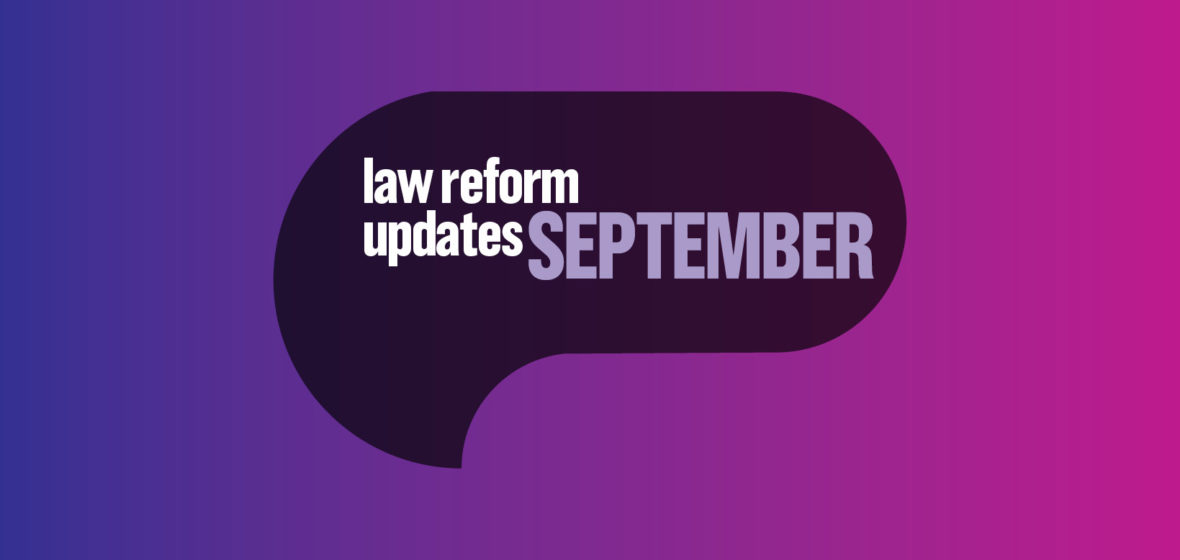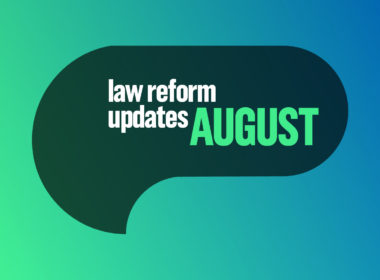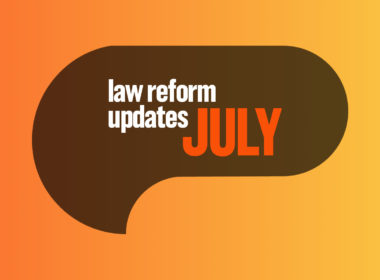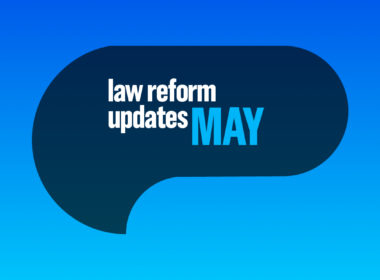Key developments
- Statutory review of the Evidence Amendment (Tendency and Coincidence) Act 2020
- Statutory review of the Victims Rights and Support Act 2013
- Independent Legal Assistance and Review Service
- Motor Accident Guidelines: CTP Care
- Management of Migration to Australia – Family Reunion and Partner Related Visas
- Stage 2 Reform of the Disability Standards for Accessible Public Transport 2002
- 2022 Review of the Workers Compensation Scheme
- Superannuation Annual Members’ Meeting Notices
- Draft Conveyancing (Sale of Land) Regulation 2022
- Children and Young Persons (Care and Protection) Regulation 2022
- Game and Feral Animal Control Regulation 2022
Statutory review of the Evidence Amendment (Tendency and Coincidence) Act 2020
The Criminal Law Committee contributed to a submission to the Department of Communities and Justice’s statutory review of the Evidence Amendment (Tendency and Coincidence) Act 2020.
The amending legislation commenced on 1 July 2020, and introduced reforms to facilitate greater admissibility of tendency and coincidence evidence, particularly in child sexual offence proceedings.
The challenges of getting cases listed for trial over the last two years due to the COVID-19 pandemic has contributed to there being a very limited amount of case law to draw on for the review. No case has yet presented a challenging set of submissions to allow a complex and detailed analysis of the new provisions. As a result, we were not in a position to provide comprehensive commentary on the operation of the new provisions. We therefore strongly suggested that the Department undertake a further review of the legislation in two years’ time.
In the submission, we suggested that consideration be given to amending s 97A to prevent the inadvertent ‘criminalisation’ of consensual sexual encounters between children and young persons. We also provided detail as to why any further amendment (including expansion of s 97A to adult sexual assault proceedings) is not supported by the Law Society at this time.
Statutory review of the Victims Rights and Support Act 2013
The Human Rights, Family Law and Children’s Legal Issues Committee contributed to a submission to the Department of Communities and Justice’s statutory review of the Victims Rights and Support Act 2013 (‘the Act’).
In the submission, we noted that while the eight policy objectives of the Act remain valid, the terms of the Act require update or reform to appropriately meet those policy objectives.
We suggested that the requirement to prove injury under the Victims Support Scheme should be removed to establish a more trauma-informed approach to victim’s rights. We also suggested that the amounts available under each category of recognition should be increased to adequately recognise victims’ experiences. Further, we noted that the definitions around modern slavery should be amended so that they apply to the greatest number of victims of this offence, in line with the beneficial intent of the Scheme.
Independent Legal Assistance and Review Service
The Injury Compensation Committee, together with representatives from several law firms representing both plaintiffs and insurers, contributed to the Independent Review Office’s (‘IRO’) Independent Legal Assistance and Review Service (‘ILARS’) Review.
The submission addressed processes for the approval of lawyers, the way that funding grants are structured, appeals, disbursements and the role of early solutions. It noted the Law Society’s support for the way in which the ILARS contributes positively to the objects of the workers compensation system in the way in which it sets fees for professional costs and disbursements.
In the submission, we suggested that the current arrangements for dealing with multiple applications for funding for the same injured worker need to be revised to ensure fairness. Further, the IRO should consider implementation of an annual CPI increase to the professional fees. Further, certain matters, for example matters involving psychiatric injuries, should be considered for a complexity uplift, as well as matters where the employer is uninsured or there are multiple insurers.




